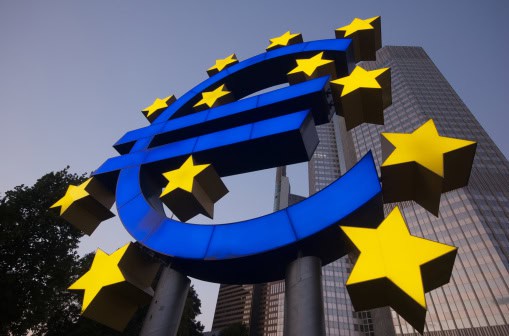What are the financial consequences of the UK leaving the European Union?
According to a report by German thinktank Bertelsmann Stiftung, a British exit from the EU would have “long-term negative consequences” for the economy, and could cost more than €300 billion.
David Cameron promised that if his party wins the general election there will be an EU membership referendum by 2017, as many voters don’t want the UK to stay in the EU.
However, an exit would hurt the UK economy. The report indicates that the British economy would be between 0.6% to 3% smaller after 12 years outside the bloc than it if it were to remain a member.
Even if the country has a trade agreement with the EU, like Switzerland, an exit would cost every citizen in the country the equivalent of 220 euros (£157) a year (at current prices) by 2030.
A less favourable scenario would be if the UK loses all trade agreements and privileges. If this were to occur then the cost would be equivalent to 4,850 euros (£3,470) per UK citizen.
If the UK leaves the EU then it would reduce the bloc’s potential GDP by up to 0.36% by 2030 and global GDP by 0.25%, the report warned.

The report said:
“The severity of the impact will differ for individual British industries,”
”For the important area of financial services, anticipated losses in added value reach around 5% in the unfavourable scenario. The chemicals, mechanical engineering and automotive industries will see steep losses in added value because they are heavily incorporated in European *value chains. The chemicals industry will face the greatest drop – nearly 11%.”
*Value chain refers to every operation undertaken within a company that adds value – from getting the raw materials to delivering the finished product.
It is the first study of its kind to examine the consequences of a UK exit from the EU not only for the United Kingdom, but for all the other EU countries as well.
EU member nations will also be effected, but the UK would suffer the most
“In addition to the economic growth losses, the remaining EU countries would have to adjust to higher expenditures for the EU budget. For example, to compensate for the loss of the UK’s financial contribution, Germany would need to pay an additional €2.5 billion annually as the biggest net contributor.”
Bertelsmann Stiftung chairman and chief executive Aart De Geus said: “A Brexit is a losing game for everyone in Europe from an economic perspective alone – particularly for the UK.”
“But aside from the economic consequences, it would be an especially bitter setback for European integration as well as Europe’s role in the world. Setting the course for a Brexit in the House of Commons elections would weaken the Union.”
